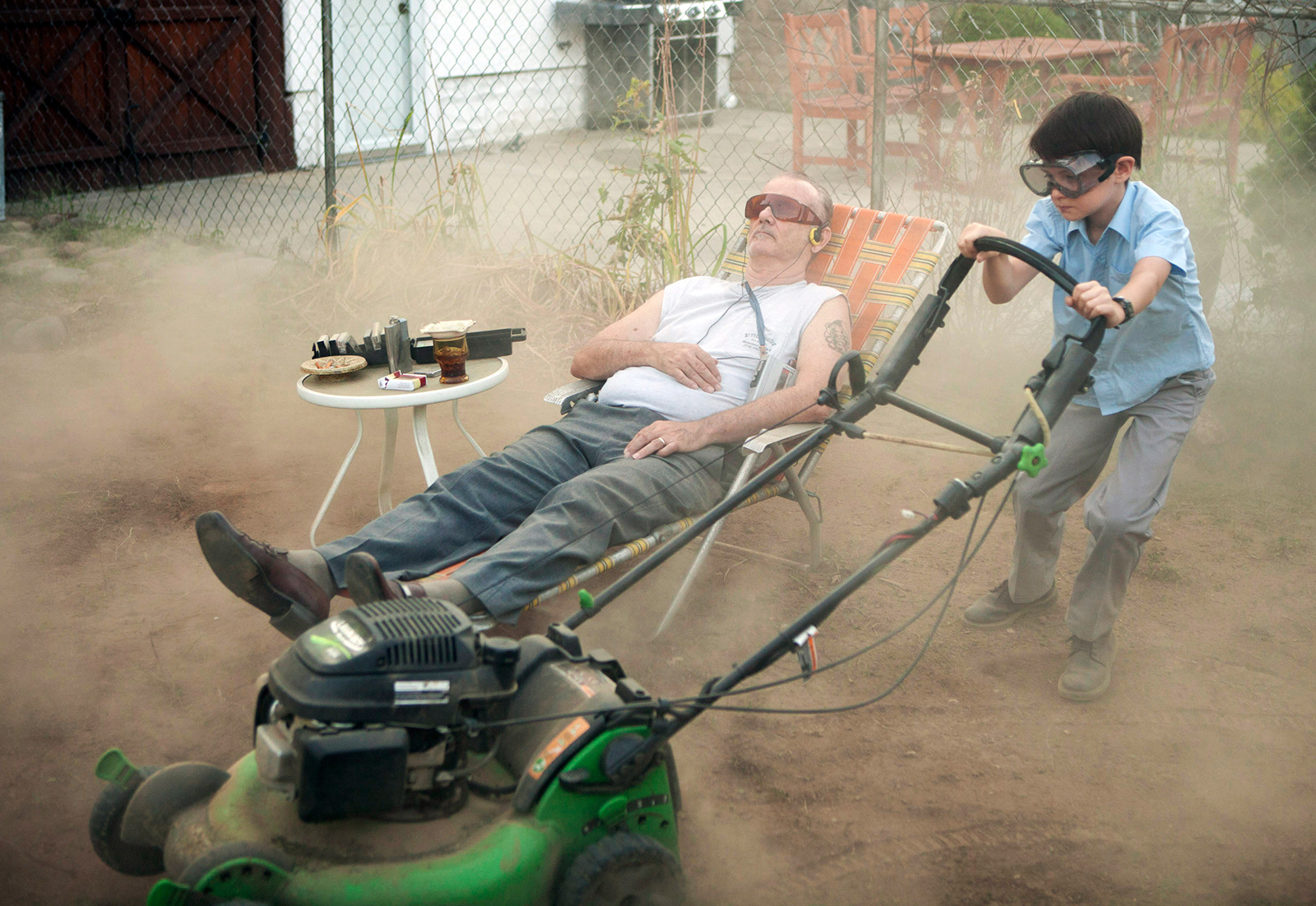Movie Review: ‘St. Vincent’

(The Weinstein Company)
By Sebastian Torrelio
Oct. 16, 2014 12:46 a.m.
Actor Bill Murray is the jackalope of the motion picture industry – elusive and difficult to find or predict, but oh so wonderful when he appears. He appears cute and huggable on the outside, but can instantly fall into a menacing haze, taking an acting role to its darkest extremities.
There are only a handful of people in the industry who know this creature well enough to control him, and director and screenwriter Theodore Melfi has proven himself worthy. In his debut feature “St. Vincent,” Melfi provides enough humor, warm feelings and supporting talent to the story so that Murray can triumphantly play off its clichés and dull notes with a light-hearted, though grumpy, ease.
As that may be, however, Murray isn’t even playing the lead character. That honor goes to Jaeden Lieberher as Oliver Bronstein, a young boy who, though intelligent enough to understand the world around him with an inquisitive sophistication, gets shepherded around by his mother Maggie (Melissa McCarthy) as she tries to make ends meet after a divorce. Vincent McKenna (Murray) is their new neighbor, a gruff, misanthropic war veteran who doesn’t make the best first impression, or any good impression thereafter.
Like the young boys of many indie films, Oliver is alone most of the time, finding it hard to make friends at his new school or live well enough on his own, so he takes up Vincent as his babysitter. Comedy ensues as Vincent, uncaring of the world but caring enough of his new pal, takes Oliver to the racetracks, the bars and anywhere else that might exasperate Maggie.
Therein lies a plot that comes with very little surprises: an older gentleman – or “ungentleman” in this case – takes a young protégé under his wing as he teaches him the ropes of the world, whether the kid is ready for it or not. It isn’t even the first time Murray himself has been in one of these roles, such as in the playful “Meatballs” and the contemporary classic “Rushmore.” Naturally, Vincent ends up learning that he needs the boy too, and their roles become complementary to even the most cheesy extents.
But the cheesiness doesn’t stop there – under Vincent’s hardened exterior, one that has him frequently paired with a Russian prostitute (Naomi Watts) in front of his adolescent comrade, is a man who visibly struggles, occasionally sobering up to visit his wife, who has Alzheimer’s, in a nursing home. Vincent isn’t a shell of a man, he’s just mean and upset all the time because he’s lonely and doesn’t want to admit it.
“St. Vincent” would bless the soul that comes out of the closing credits with such a kind message in their heart, a soul that also came out of the experience with a tear or two down their cheek, ready to take the movie’s predictable themes to heart without delay. But that person would also miss something special through the good feelings blocking their misty eyes – a credits sequence of Murray sitting on his backyard lawn chair, singing along to Bob Dylan’s “Shelter From the Storm” on his Walkman.
That’s what makes “St. Vincent” not only entertaining but enthralling – there’s something in Bill Murray’s soul that wants to be Vincent, and can play him so abrasively and effortlessly that a few moments of bleak sentimentality can’t ruin the fun. Murray evokes the stern wit of a father and the dry condescension of an irascible peer, but can’t shake the feeling of being your best friend, and he makes the already pleasurable roles of McCarthy, Watts and Lieberher all the better for it.
Whatever attracted Murray to Melfi’s original script, be it the justifications of the crusty character or the sweetness that lies underneath, it must have been pretty great to get the reverently impalpable comedian, famous for not having his own agent or manager, to sign on. But there is an essential principle that Melfi forgets in his screen translation: Murray is already an acting saint to many – so much so that it really doesn’t take the many mawkish moments of “St. Vincent” to get the point across.
– Sebastian Torrelio


